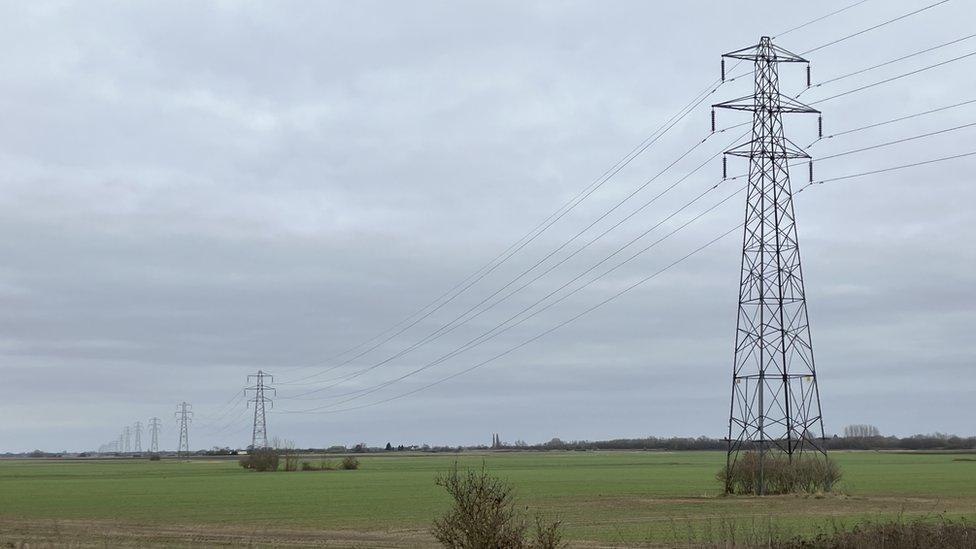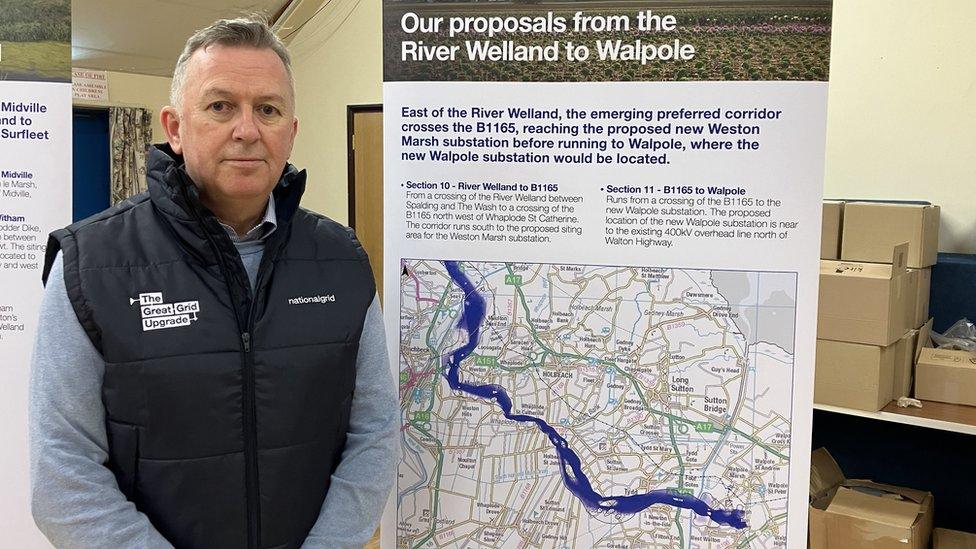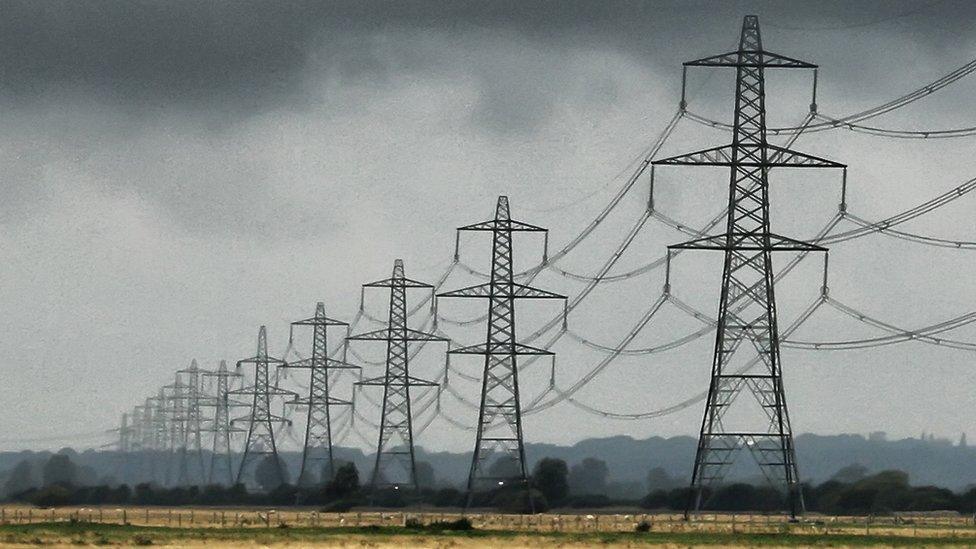Fens pylons: National Grid to consider residents' views
- Published
- comments

Could more pylons be set for the skyline in Fenland?
A network of pylons through the Fens will not take shape before nearby residents' opinions are carefully considered, the company behind the plans said.
The National Grid proposes to build a line from Grimsby to Walpole 87 miles long.
It said the project will connect wind farms in the North Sea and planned solar farms in the area to the grid.
People living nearby are worried about their health and the visual impact.
The National Grid has said the project is a key piece of national infrastructure, external with demand for electricity set to double in future.
The new line is also designed to help meet Government plans to transition to more renewable sources of electricity generation, rather than relying on fossil fuels.
The pylons are proposed from the banks of the River Humber through Lincolnshire and the Fens before connecting up to a new sub-station near Wisbech.
A public consultation on the exact route is under way.
National Grid external affairs manager Steve Knight-Gregson said: "It is right that we bring our proposals to local communities and hear everybody's views and carefully consider those.
"We need to increase the capability of the network to carry more power and we need to connect these clean, green sources of energy - offshore wind and solar - to the network.

Steve Knight-Gregson from the National Grid says no final decisions have been made on the exact route of the pylons
"We are at a very early stage. We have not fixed any proposals yet. We are keen to get everybody's views so we can consider that feedback as we develop our proposals."
A series of public exhibitions of the plans are currently taking place - with the first held at the Tydd St Giles community centre.
Some locals attending asked if the cables could be buried instead stretching overhead - but Mr Knight-Gregson said this would be too expensive.
"We believe the proposals we are putting forward represent the best balance. The government expects us to be efficient and economical and keep costs low for consumers. The cost is substantially greater to put the lines underground."
Knight-Gregson added that no concerns were raised about building in an area vulnerable to coastal flooding - and that this would be taken into account when designing the new sub-station.
He also insisted locals had nothing to worry about regarding the health impact of living near pylons.
"We recognise people have concerns about electric and magnetic fields and we design, plan and operate the whole network to make sure it complies with the guidance provided by Public Health England.
"They do set exposure limits for these sorts of things and this new proposal is designed to fully comply with those," Knight-Gregson said.

Anthony Alpert believes that the pylons are needed to secure electricity supplies
Up to 25 pylons are proposed to be put up in the north of Cambridgeshire with the line planned to skirt the villages of Tydd St Giles and Newton-in-the-Isle near Wisbech.
Mark Cooper, from Tydd St Giles, said: "At the end of the day, you have got to move forward. If it is going to upset a few people, it is just one of those things.
"We have got power cables now. If we want electric cars and heating, then you have just got to put up with it."
'Grinning and bearing it'
Anthony Alpert also lives in the village. He said: "I do not dispute the need for all these power lines. The country needs them. If we cannot get the electricity, what is the point in having all these wind farms?
"The next question is - can we steer them [the National Grid] enough to pick the best route and not just look at the costs of it?
"It is cheaper to go one route - but it might cross a lot of people's gardens. It could ruin a lot of property values and blight the views in these rural areas. What's the cost difference between the cheapest route and one that takes people's views into consideration?"
Martina Hauss is from nearby Holbeach St Johns and wanted reassurances from the National Grid about the impact on people's health from having pylons built nearby.
She said: "They explained that years of research has gone into these things and what potential impact for humans might be - and so far there is no evidence of any detrimental effect."
"Obviously it is not pretty, but we have already got several areas with pylons on them.
"It is a classic case of 'not in my back yard' but if we are going to become carbon neutral - and with more offshore electricity being generated for future demands - it has got to be distributed somehow. It is a case of grinning and bearing it."
A further consultation is planned for next year - before the proposals go to the secretary of state for energy security and net zero for approval.
The National Grid has said it aims to start construction in 2029 with the pylons becoming operational from 2033.

Follow East of England news on Facebook, external, Instagram, external and X, external. Got a story? Email eastofenglandnews@bbc.co.uk, external or WhatsApp 0800 169 1830
Related topics
- Published18 January 2024

- Published25 January 2024
